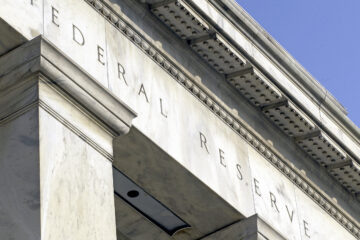Introduction
Venezuela is a state in chaos; this is a systemic issue that arises from many long years of economic mismanagement from the Chavismo administration which has ruled for two decades. These issues are now coming to light given the dismal state of affairs in Venezuela, the most obvious indicator of which is the hyperinflation.
Naturally, most of the bonds issued by the state and the state-owned government firms trade at a large discount, roughly 20 to 30 cents on the dollar. However, one bond stands out in that it trades very close to the dollar.
The PDVSA 2020 bond is issued by the Venezuelan state-owned company PDVSA, maturing
| Issuer | PDVSA |
| Maturity date | 27 October 2020 |
| Next payment | 27 April 2019 |
| Outstanding amount (27 Oct 2018) | $1,683,764,500 |
| Seniority | Senior Secured |
| Currency | USD |
| Coupon | 8.5% |
| ISIN | USP7807HAV70 |
PDVSA 2020 bond characteristics
Petróleos de Venezuela (PDVSA), is the Venezuelan state-owned oil and gas company. It dominates both as the largest player in the Venezuelan market, and the 5th largest oil exporter in the world. Historically, it has played a large role in sustaining the government by exporting the world’s largest oil reserves, funding many Chavismo activities. The nationalization and firing of professional staff a decade and a half ago has meant that a steady decline in both oil production and safety as inefficiencies mounted. The dismal state of affairs can be fully seen as 98% of export earnings are from oil.
Bearing in mind that exports account for more than 99% of its revenues, PDVSA is heavily subject to currency risk. With the sanctions imposed on January 28th by the United States treasury department banned US companies as well as individuals are banned from trading Petróleos de Venezuela, which brought trading volume on PDVSA’s debt down by 99.9% from its five-week average on the next trading day. Basically these drastic measures erased Venezuelan oil from the US market.
Hence, after the recent turbulences of the domestic economy resulting the country’s worst recession, PDVSA has not paid interest on almost all of its bonds since the end of 2017, bringing the company together with Venezuela’s government to accumulated interest payments of nearly USD 8 billion in delay. As of now, the last bond remaining current and therefore catching particular interest by media and investors since late 2018, the PDVSA 2020, is denominated in USD, making it extremely hard for PDVSA and the Venezuelan government to cover the bond’s obligations. Under these circumstances the bond’s collateral, half of PDVSA’s stake in Citgo which is a crucial asset for Venezuela, is extraordinarily at risk.
Importance of Citgo
Citgo, an American refiner, was acquired by PDVSA in full by 1990. At its peak, this meant that Venezuela was in control of a full 10% of the US oil market. Since then, matters have changed. The current CEO, a cousin of the late Mr. Chavez, was installed in 2017, but had his visa revoked in a year.
The stake in Citgo is seen as the crown-jewel of Venezuela’s foreign assets as it processes about a third of Venezuela’s oil exports to the US. It ensures a steady flow of the US dollars through its relationship as a buyer for Venezuelan oil. This crucial relationship has seen gravity-defying payments of billions as the country starves and descends into further chaos. The bond’s price is further boosted by a key fact; that the remaining coupons and principal at the maturity can be easily covered by the collateral value pledged by PDVSA.
Tensions once rose in tandem with the volatility of Venezuelan asset prices, as Juan Guaido, with the backing of many states, declared himself the “interim president”. Liquidity further dried up as US imposed more sanctions on Venezuela, freezing up trading activity.
However, risks have tapered off at first as Mr. Guaido also has acknowledged his willingness to meet the coupon payments of PDVSA 2020. This has led to a rally in prices as paradoxically, risks have decreased even as the country splinters apart.
The threat of domestic politics on the other hand, has tapered off. While both Mr. Maduro and Mr. Guaido disagree on many different matters, the continued payment of PDVSA is not. So while tensions have rose considerably, payments might not be endangered yet according to optimistic economics familiar with the causality. Yet, there are differing opinions as will be described further down.
The collateral issue in its full complexity is another key factor to keep in mind. 49.9% Citgo is also pledged as a collateral to Russia for a USD 1.5 billion loan, other than PDVSA 2020. However, the United States is very wary of allowing Citgo to fall into Rosneft’s (and by extension, Russia) hand, and sees it as a threat.
To that end, United States might actively act to undermine the chances of that happening. With the widespread recognition of Mr. Guaido as the rightful interim president, the United States are more incentivized to allow his access to the escrow account that was frozen by the treasury department’s office of foreign asset control previously. The Citgo escrow account, holding USD 560 million, would be sufficient to at least meet the next interest payment of USD 71 million end of April.
The Trump administration recent sanctions on Venezuela has however polarized relationships. By freezing oil exports to the US, Mr. Maduro has turned to Russia to sustain his fractured regime and just as recent as February, Rosneft declared that it will remain committed to the country, thereby ensuring its survival. It has to be mentioned that this has not upended the geo-political relationships as the United States were frequently condemned as imperialists and an outlet for blame.
Still, bulls of PDVSA 2020 have to be wary. Indeed, the risks of longing PDVSA 2020 is not justified given that it already trades very close to the dollar. A long line of creditors, from Russia to Canada, await, ready to sink their fangs into Citgo as lawsuits increases. But it certainly should be noted that liquidity for the bond dropped tremendously as major banks have stopped trading PDVSA bonds, showing no price on their trading systems compared to more than 20 usually available before.
The severity of the sanctions has made PDVSA’s outlook bleak. American and even European partners are pre-emptively cancelling previous contracts to reduce uncertainty. Even if some isolated markets are willing to sell crude to PDVSA for them to blend their oil or purchase their products, a huge discount would be expected. Production looks to dip even further from current depressed levels.
PDVSA Credit Risks
The important question for investors now is whether the price of close to the dollar is still reasonable. There are two major risks for the PDVSA 2020: firstly the tumbling importance of Citgo to Mr. Maduro’s government and secondly the economic sense of paying such a high price for holding Citgo with respect to the concern that it will be lost after maturity of the 2020 regardless.
Regarding the first risk mentioned, Mr. Maduro’s concerns are twofold. On the one hand Citgo provides a steady flow of hard currency, but this flow has been declining strongly and as the crude oil production is at a 70-year low. Given this production squeeze, Citgo’s refineries are only running on 25% capacity utilization, thus losing majority in Citgo will most certainly mean a complete loss of this currency stream.
On the other hand, it looks like Mr. Maduro lost Citgo to Mr. Guaido’s control already either way. In spite of Mr. Maduro still being in power of Venezuela’s institutions, military, domestic economy and thereby PDVSA, Mr. Guaido has made a serious run on Venezuelan assets abroad after the latest US sanctions, starting with appointing a new ad hoc board selected for both PDVSA and Citgo. Although this move does not grant him any control over operations at home yet, with Citgo he still evidently gained power of a key political instrument considering that oil exports play such a crucial role in the Venezuelan economy that it will be the lead to any rebuilding effort. Moreover, the US also handed over control of Venezuelan bank accounts based in the US to National Assembly President Juan Guaido.
However, political considerations aside, there is also the economic concern that Citgo might be lost after the 2020 maturity simply because of the total missed debt payments piling up over the next years, as can be seen in the chart below. Venezuela and PDVSA jointly owe more than USD 100 billion to external creditors, mostly denominated in USD. In times of
Following this, creditors gain legal power the more payments are in delay and may have an edge in US courts at some point in the future which can eventually lead to access to the stake in Citgo.
Why should Mr. Maduro remain current on this particular bond then?
Summing up, where the risk-reward ratio on PDVSA 2020 were once decent, recent news and market phenomena cautioned otherwise. The upside is very much constrained with the recent rally, and the sanctions have essentially froze all subsequent movements. We started writing our research bullish on the bond, but currently position ourselves as bears with the descent of geopolitics into chaos.



0 Comments